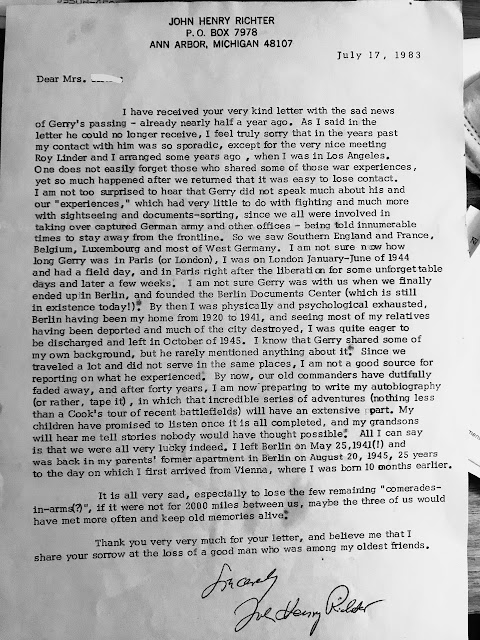Been reading marathon like to finish this by book club Monday night.
It's fantastic!! Yesterday I'd read the 500th section and at the Juneteenth Festival I was telling everyone I met about the book.
You're going to hear more about this book in coming days here. But for now, this its sort of a diversion.
The cover is full of birds. And birds fly in and out throughout. This is not a book about birds, it's just that the author brings in all sorts of topics that are relevant to the key tale, which is about an Israeli Jew whose daughter was blown up in a suicide bombing in Jerusalem and a Palestinian Muslim whose daughter was shot in the head by Israeli police. Both meet at a group called the Parents Circle - an organization that gets parents who have lost children in the battles between Israelis and Palestinians. They connect and then start making presentations to groups all over the the world, But mostly in Israel and Occupied Palestine.
It's a fictionalized account of real events. Perhaps telling us more truths than a non-fiction account could. It's divided into 1001 sections. Each of different lengths. Some span half a dozen pages or more. Others are just one line. They number 1 -500. The next one is 1000, The next one is 500 again and the rest go back to 1. It's almost like a book of many, many short stories. Sections 500 are perhaps the crux of the book, all the bits and pieces we've already heard about in previous sections, but knitted together. The first section 500 is the talk given by Rami, the Israeli, at the Cremisan Monastery at Beit Jala in the Occupied Territories. The second section 500 is the talk given by Bassam, the Palestinian, the same night and in the same place.
But I want to save 500 for later. In this post I want to mention birds. Particularly hoopoes.
Section 3, on page 4 (Section 1 starts on page 3) begins
"Five hundred million birds arc the sky over the hills of Beit Jala every year. They move by ancient ancestry: hoopoes, thrushes, flycatchers, warblers, cuckoos, starlings, shrikes, ruffs, northern wheatears, plovers, sunbirds, swift's, sparrows, nightjars, owls, gulls, hawks, eagles, kites, cranes, buzzards, sandpipers, pelicans, flamingos, storks, pied bush chats, griffon vultures, European rollers, Arabian babblers, bee-eaters, turtledoves, whitethroats, yellow wagtails, blackcaps, red-throated pipits, little bitterns.
It is the world's second busiest migratory superhighway: at least four hundred different species of birds torrent through, riding different levels in the sky. Long fees of honking intent. Sole travelers skimming low over the grass."
Already in this section, though I didn't realize it at the time, it prepares us for that talk at the Cremisan Monastery in Beit Jala. And sections like this put the present day events into perspective. The birds have been flying by here for thousands of years. Many, many young girls have died during that time span in this place. While the book focuses on two particular girls, Smadar and Abir, all the other girls' lives were important too and at the same time all those birds flew by totally unaware.
And the book is like that. Fragments of life spiral in and out of center stage, all adding rich links, illustrating the interconnection of everything.
But this post is about hoopoes. (Did you catch that hoopoes are the first bird mentioned in Section 3?)
We hear about them again in Sections 469 - 471. 469 is about a group of actors (including Helen Mirren) who travel through rural Algeria.
"The troupe journeyed through the desert, stopping in the evenings in the smallest and most isolated villages they could find. They unfurled a large carpet and set up a series of corrugated boxes while one of the actors sounded out a drum call. An audience formed, and the troupe began their performance of an adaption of The Conference of the Birds, based on an allegorical poem by Farid ud-Din Attar, using hand puppets to illustrate the story of a gathering of the world's birds trying to decide who should be their king.
In the play, each bird represents a human fault which prevents man from attaining enlightenment. The wisest bird among the, the hoopoe, suggest that together they try to find the legendary Persian Simorgh to gain enlightenment for themselves. . .
The village crowds reacted variously - some cheered, others laughed, while a few stayed silent . . "
[As I think of my two years in a rural Thai town, itinerant troops of actors would come through, set up their stage, and perform for folks in the evening - Thai dramas and Chinese opera perhaps the most popular.]
470
"The Conference of the Birds was written in Persia, at the end of the twelfth century.
When the last birds - thirty of them - finally get to the home of the Simorgh, exhausted, they gaze into a lake and instead of meeting the mythical creature they've been searching for, they find only their own reflections."
471
"On the sixtieth anniversary of the founding of Israel, the hoopoe -the loquacious, dappled, with a long beak and slicked-back tuft of hair - was chosen as the national bird.
During the vote, Shimon Peres, the Israeli president, said he was only sorry that the most Zionist of birds, the dove, had not made the final cut.
It was, said Nurit [wife of Rami, the Israeli father] one of the most perverse lines she had heard in her life, although it was, she added, apt that the name Peres in Hebrew meant bearded vulture."
In a sense, this is a book of 1001 short stories that all intertwine.
The hoopoe references are among the least intertwined into the story itself.
But the hoopoe is a bird that has fascinated me since I first saw it in the Hong Kong Bird Guide I bought in 1989 when I was teaching there. The picture from that book should help you see why I was so taken.
Those are all cool looking birds, but the hoopoe is in a class all by itself. I never saw a hoopoe in Hong Kong. But in 2006, after giving a paper at a conference in New Delhi, we went to see the Taj Mahal. I couldn't imagine that after seeing pictures of the Taj all my life, that the real thing would live up to my expectations. I was wrong. It was amazing.
We were sitting on a bench in front of this exquisite love letter in the form of enchanting white curves, when a strange bird caught my attention. As I looked closer, I suddenly realized, whoa, that's a real live hoopoe.
There were a bunch of them on the lawn. The history of the Taj would have to wait a bit.
So, there you have an appetizer for Apeirogon. There will be at least one more post on this book. But I still have about 40 pages to go. I'll let you know if the hoopoe makes another surprise appearance at the end.
NOTE July 5, 2022: I've put up a
second, meatier post about Apeirogon here.


























